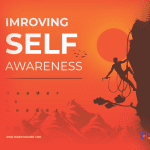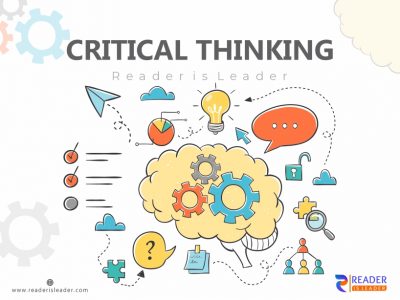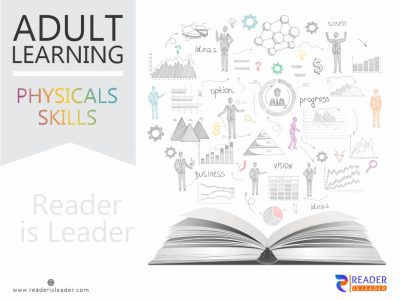Appreciative Inquiry

After completion of this course, the candidate will be able to cover the following..
For Course Benefits, please watch this Video or Read below….
[video_popup url=”https://www.youtube.com/watch?v=JvSVknkkCh8″ text=”” title=”” auto=”” n=”1″ p=”” wrap=”1″ img=”https://courses.readerisleader.com/wp-content/uploads/2023/05/hnhjk.png”]
- Positive Focus:
The course emphasizes a positive and strengths-based approach to problem-solving and change management. You learn to focus on what is working well and build upon existing strengths, fostering a more optimistic and productive mindset.
- Collaborative Culture:
Appreciative Inquiry promotes collaboration and inclusive decision-making. Through the course, you develop skills in facilitating group discussions, promoting active participation, and harnessing the collective wisdom of diverse perspectives.
- Innovation and Creativity:
The course encourages innovative thinking and creative problem-solving. By exploring positive experiences and identifying what works, you gain insights and inspiration to generate innovative ideas and approaches to challenges.
- Organizational Transformation:
Appreciative Inquiry can lead to transformative change within organizations. Through the course, you acquire the skills to guide and facilitate positive change initiatives that foster employee engagement, improve organizational culture, and drive sustainable growth.
- Strengths-Based Leadership:
The course cultivates strengths-based leadership skills. You learn to leverage the strengths and talents of individuals and teams, empowering them to excel and contribute to the overall success of the organization.
- Empowered Individuals:
Appreciative Inquiry empowers individuals by recognizing and valuing their contributions. Through the course, you develop the ability to create an inclusive and empowering environment that encourages personal growth, self-efficacy, and employee satisfaction.
- Enhanced Communication:
The course improves your communication skills, enabling you to ask powerful questions, actively listen, and engage in meaningful dialogue. These skills facilitate effective communication and create a positive and open atmosphere for collaboration and idea-sharing.
- Cultural Transformation:
Appreciative Inquiry can drive cultural transformation within organizations. Through the course, you learn to identify and amplify positive cultural elements, fostering a culture of trust, collaboration, and continuous improvement.
- Resilience and Adaptability:
The course equips you with the skills to navigate change and uncertainty with resilience and adaptability. Appreciative Inquiry encourages a positive outlook and a focus on strengths, helping individuals and organizations adapt and thrive in dynamic environments.
- Employee Engagement:
Appreciative Inquiry fosters higher levels of employee engagement by involving employees in the change process and recognizing their contributions. Through the course, you learn techniques to enhance employee engagement, job satisfaction, and commitment to organizational goals.
- Improved Problem-Solving:
The course enhances your problem-solving abilities by shifting the focus from problems to possibilities. You learn to reframe challenges as opportunities, enabling you to approach problem-solving with a more creative and optimistic mindset.
- Sustainable Change:
Appreciative Inquiry emphasizes sustainable change by building on positive aspects and creating a shared vision for the future. Through the course, you gain the skills to design and implement change initiatives that have lasting impact and foster continuous improvement.
- Trust and Collaboration:
Appreciative Inquiry promotes trust and collaboration among team members. The course equips you with tools to strengthen relationships, build trust, and foster effective teamwork, enhancing cooperation and synergy within the organization.
- Positive Organizational Culture:
The course contributes to developing a positive organizational culture. By focusing on strengths, celebrating successes, and fostering a supportive environment, Appreciative Inquiry creates a culture that values employee well-being, innovation, and positive relationships.
- Personal Growth and Development:
Engaging in an Appreciative Inquiry course fosters personal growth and development. You gain insights into your own strengths, values, and potential, facilitating self-reflection and self-improvement in both personal and professional contexts.
- Increased Motivation:
Appreciative Inquiry taps into individuals’ intrinsic motivation by highlighting their strengths and positive contributions. Through the course, you learn to leverage this motivation to enhance engagement, productivity, and job satisfaction.
- Effective Change Management:
The course equips you with effective change management skills based on Appreciative Inquiry principles. You learn to navigate the complexities of change, overcome resistance, and facilitate smooth transitions, promoting successful change initiatives within organizations.
- Enhanced Leadership Skills:
Appreciative Inquiry develops leadership skills by emphasizing positive leadership practices. Through the course, you learn to inspire, motivate, and engage others, creating a positive and inclusive environment that encourages individual and team success.
- Client Satisfaction:
Appreciative Inquiry enhances client satisfaction by focusing on understanding and meeting client needs. Through the course, you develop skills to identify client strengths and preferences, leading to improved client engagement, loyalty, and positive word-of-mouth.
- Sustainable Positive Change:
The course enables you to create sustainable positive change within organizations and communities. By employing Appreciative Inquiry principles and practices, you can create a ripple effect of positive change, enhancing the overall well-being and success of individuals and groups.
Appreciative Inquiry Modules
In this course, you will get 12 Modules which are describing all aspects greatly
- Module One: Getting Started
- Workshop Objectives
- Pre-Assignment
- Module Two: Introducing Appreciative Inquiry
- What is Appreciative Inquiry?
- Generating a Better Future
- Engaging People in Positive Thought
- Change the Person, Change the Organization
- Case Study
- Module Three: Changing The Way You Think
- Shifting from “What’s Wrong?” to “What’s Right?”
- It’s Not Eliminating Mistakes-It’s Holding up Successes
- Positive Language Will Affect People’s Thinking
- Limit or Remove Negative Phrasing
- Case Study
- Module Four: Four D Model
- Discovery
- Dream
- Design
- Delivery
- Case Study
- Module Five: Four I Model
- Initiate
- Inquire
- Imagine
- Innovate
- Case Study
- Module Six: Appreciative Inquiry Interview Style
- Framing Positive Questions
- Solicit Positive Stories
- Finding What Works
- Recognize the Reoccurring Themes
- Case Study
- Module Seven: Anticipatory Reality
- Imagining a Successful Future Will Affect the Present
- Controlling Negative Anticipation
- Current Decisions Will Be Influenced Positively
- Base It on Data and Real Examples
- Case Study
- Module Eight: The Power Of Positive Imagery
- Shaping Performance with Positive Imagery
- Being Better Prepared for Adversity
- People are More Flexible and Creative
- Think of the Perfect Situation
- Case Study
- Module Nine: Influencing Change Through Appreciative Inquiry
- Using Strengths to Solve Challenges
- Confidence Will Promote Positive Change
- Inquiry is a Seed of Change
- People Will Gravitate Towards What is Expected of Them
- Case Study
- Module Ten: Coaching And Managing With Appreciative Inquiry
- Build Around What Works
- Focus on Increases
- Recognize the Best in People
- Limit or Remove Negative Comments
- Case Study
- Module Eleven: Creating A Positive Core
- Strengths
- Best Practices
- Peak Experiences
- Successes
- Case Study
- Module Twelve: Wrapping Up
Be Creative with Quizes
Each Module is finishing with its quiz & hence you will get to review your Modules in the form of 100 questions.
- Module Two Review Questions
- What is Appreciative Inquiry?
- How does Appreciative Inquiry benefit a business?
- How does Appreciative Inquiry help build for the future?
- What is one way Appreciative Inquiry helps to build goals?
- What is one benefit of engaging other people to be positive?
- What is one way to encourage positivity among other people?
- How does a positive employee affect the company?
- One way to ensure employees feel confident at work is to do what?
- Why did Alex decide to use Appreciative Inquiry?
- How did the Appreciative Inquiry affect Marshall?
- Module Three Review Questions
- When we shift our thoughts from negative to positive, avoid doing what?
- No situation can be deemed impossible if we do what?
- A common misconception is that positivity means we don’t have what?
- When faced with a current problem, it is better to focus on what?
- One example of using positive language includes which of the following?
- What is one way to create positive language for ourselves?
- One example of a negative phrase includes which of the following?
- The words ‘someday’ and ‘try’ are words that allow us to do what?
- Why was Stacy angry with her manager?
- When Stacy became discouraged during the project, what made her more confident?
- Module Four Review Questions
- What is the Discovery phase?
- One example of the Discovery process is what?
- What is the Dream phase?
- One example of the Dream process is what?
- What is the Design phase?
- One example of the Design process is what?
- What is the Delivery phase?
- One example of the Delivery process is what?
- What was Jeremy’s group working on currently?
- What was the first thing Jeremy asked the employees to think about?
- Module Five Review Questions
- What is the Initiate phase?
- One example of the Initiate process is what?
- What is the Inquire phase?
- One example of the Inquire process is what?
- What is the Imagine phase?
- One example of the Imagine process is what?
- What is the Innovate phase?
- One example of the Innovate process is what?
- Where did Jeremy introduce the employees’ new marketing plan?
- What was the last step the manager’s needed to complete before implementing the new plan?
- Module Six Review Questions
- Framing positive questions for an interview does what?
- Which of the following is considered a positive question?
- When you open with a positive story in an interview, what can happen?
- Which of the following would be a positive story to solicit in an interview?
- It is important for an interviewer to know what?
- If the manager is looking for a positive candidate, they must show what?
- What does a reoccurring theme in an interview show?
- What is an example of a reoccurring theme?
- What did the applicant say one of his favorite tasks was?
- How did talking about this task help the employee feel more at ease?
- Module Seven Review Questions
- How does a planning future success affect our goals?
- What is the benefit of planning a future success?
- What is negative anticipation?
- What is one way to control or relieve negative anticipation?
- The decisions we make today can influence our what?
- What is the benefit of making positive decisions today?
- Anticipation should only be based on what?
- To avoid basing assumptions on untrue facts, we should avoid what?
- What was Bruce creating a report for?
- Why did Bruce begin to over react?
- Module Eight Review Questions
- What is positive imagery?
- What is one example of positive imagery?
- How can we prepare ourselves for adversity?
- Being prepared means you are not _________ your surroundings.
- Being flexible in a situation means you can’t change the problem but you can what?
- All problems have a ___________; they are not all black and white.
- A perfect situation does not have what?
- The perfect situation is ______________.
- What building was Anna working on a design plan for?
- What piece of imagery made Anna feel more confident about finishing the design?
- Module Nine Review Questions
- Using our strengths to help us solve problems promotes what?
- Which of the following is an example of a personal strength?
- Having confidence helps us do what when we make a mistake?
- What is one way a person can boost their own confidence?
- Why would inquiry be considered the seed of change?
- What is one of the simplest ways to make a change?
- Why are people drawn to what is expected of them?
- If we are positive and show it to other people, they will ____________.
- What was Allen having trouble with?
- What was one way Allen remained positive about the budget plan?
- Module Ten Review Questions
- The key to building a great team is what?
- What can happen if we try to change a process that has been working?
- Focusing on increases, instead of decreases, encourages what?
- What is one area that is commonly encouraged to increase?
- What does it mean to see the best in other people?
- Don’t be afraid to do what with your employees?
- Using negative language with an employee can make them feel what?
- Which of the following is a form of negative phrasing?
- What department does Michelle work for?
- What was one aspect Michelle encourage the other employees to improve?
- Module Eleven Review Questions
- How does identifying our strengths boost our confidence?
- What is one way we can help identify our strengths?
- What are best practices?
- Best practices are defined by what?
- What is a peak experience?
- Peak experiences can help us feel positive because why?
- What is success?
- Remembering our past successes can help us __________ when it comes to current problems.
- Why was Robert feeling so depressed?
- How did Robert decide he would try to do better on his next presentation?

- What is the requirement for this course?
The course is open to anyone who is interested in learning more about the subject matter, and there are no specific entry requirements to enroll.
- What much Time I need to Spend for completion of this course?
The course is divided into different modules, with an average study time ranging from 20 to 90 minutes per module as per your convenience. While you have the flexibility to allocate your preferred amount of time to each module, after buying you will have lifetime access to the course so you can log in and out of the course as per your schedule.
- When and Where I can Study this Course?
You can study this course at any time and anywhere of your choice, you have the convenience of logging in and out of the web-based course as often as you need. The course is compatible with all devices, including computers, tablets, and smartphones, allowing you to study even while on the go.
- How I can Pay for this Couse?
To make a payment for this course, you have the option to use several payment methods including Visa, MasterCard, and PayPal account. The website employs the latest SSL encryption technology to ensure that your payment details are kept safe and secure. All payments are processed securely by PayPal, providing an added layer of protection for your peace of mind.
- How soon I can have access to the course material?
You will have access to the course immediately after you make the payment. You will receive email confirmation of payment at the same time with full access to the course material.
- Can I earn a Certificate at the end of the course?
That’s Right! At the completion of the course, we will earn a Professional Certificate that can be a valuable addition to your career and personal achievements. This certificate will serve as evidence of the knowledge and skills you have gained through the course, and can help you demonstrate your expertise to current or potential employers.
- What is the validity of the Certificate?
Certificate is your achievement, which will remain with you forever. It doesn’t have any expiry or need any renewal. Enjoy the Course and Good Luck.
Downloads
Get life-time access for 48 Well Documented Downloadable Pages of this course
This Course Includes….
24/7 Student Support
End of Course Certification
Lifetime Access
Compatible with Modern Devices
You can have all of our courses for $99 Per Year, Click Here
Related Courses Below..

Participants Will Be Able To:
- Know the meaning of Appreciative Inquiry
- Think in positive terms and avoid thinking negatively
- Encourage others to think positively
- Recognize positive attributes in people
Create positive imagery - Manage and guide employees in a positive environment




Introducing Appreciative Inquiry
Before someone can begin to utilize Appreciative Inquiry, they must first know what it is and what it means. There are many techniques and practices that can be used with Appreciative Inquiry that anyone can use in their lives. It helps address ways to encourage positive ways of thinking instead of using negativity or even criticism.
What is Appreciative Inquiry?
The definition of Appreciative Inquiry is the ability to recognize the best in people and utilizing those strengths to discover new possibilities and results. Appreciative Inquiry focuses on positive thinking and expresses ideas and opinions to reach an end result. Appreciative Inquiry in the workplace encourages employees to think positively, which in turn helps them to overcome their own negative thoughts to work harder and reach their own goals for better productivity.























